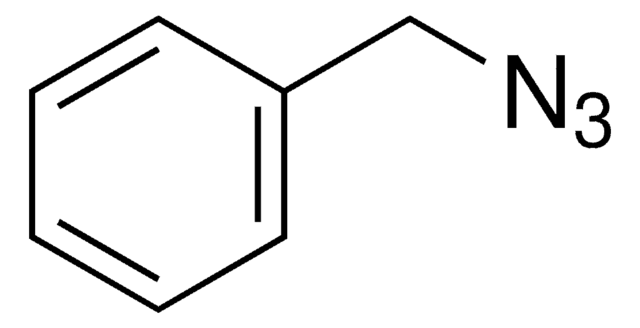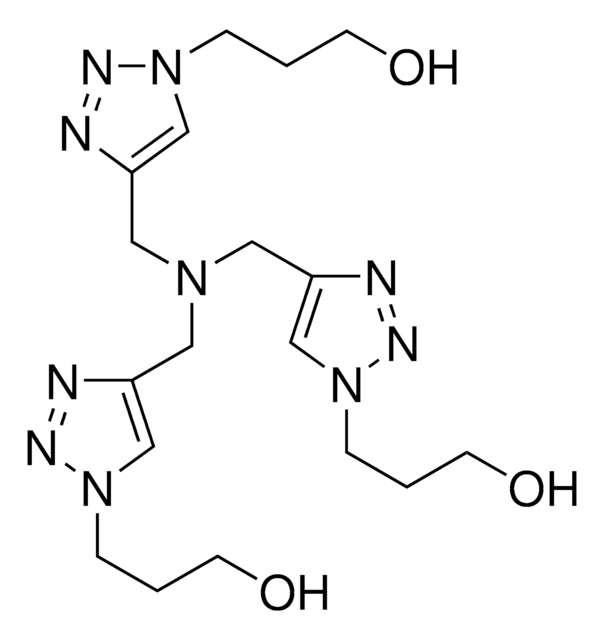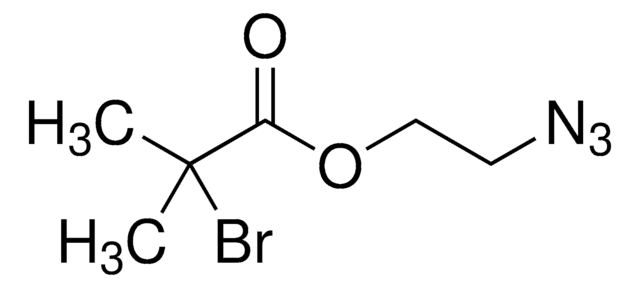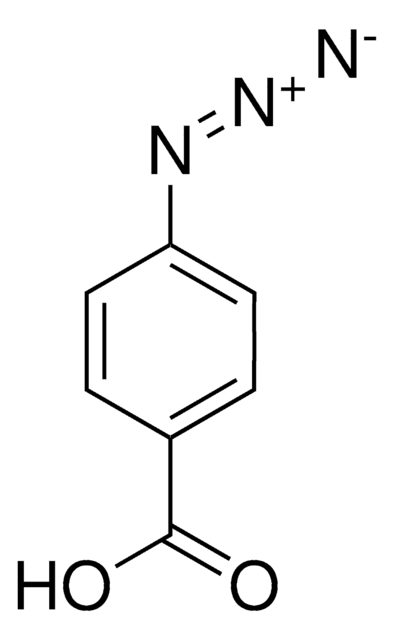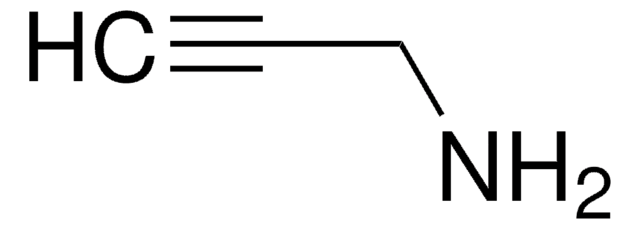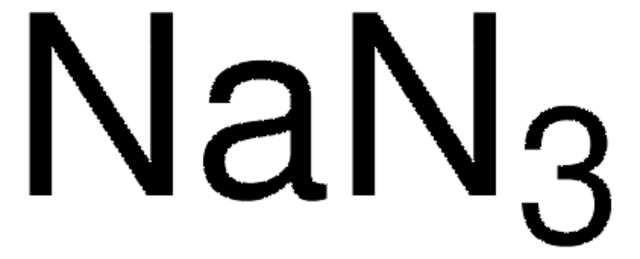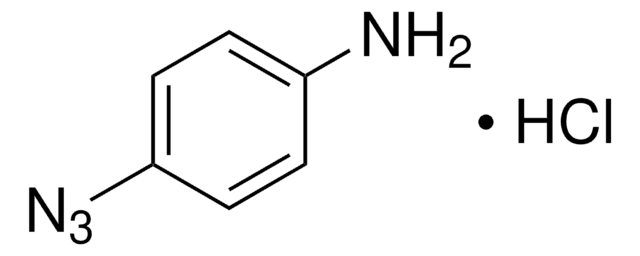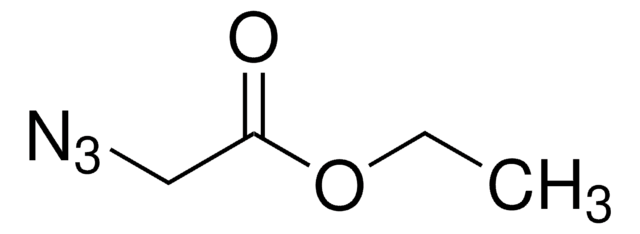776130
3-Azido-1-propanol
≥96%
Synonym(s):
1-Azidopropan-3-ol
Sign Into View Organizational & Contract Pricing
All Photos(3)
About This Item
Empirical Formula (Hill Notation):
C3H7N3O
CAS Number:
Molecular Weight:
101.11
MDL number:
UNSPSC Code:
12352125
PubChem Substance ID:
NACRES:
NA.22
Recommended Products
Quality Level
assay
≥96%
form
liquid
reaction suitability
reaction type: click chemistry
refractive index
n20/D 1.461
density
1.095 g/mL at 25 °C
storage temp.
2-8°C
SMILES string
OCCCN=[N+]=[N-]
InChI
1S/C3H7N3O/c4-6-5-2-1-3-7/h7H,1-3H2
InChI key
WHVSIWLMCCGHFW-UHFFFAOYSA-N
Related Categories
General description
3-Azido-1-propanol is an azide-containing reagent utilized in Strain-Promoted Azide-Alkyne Cycloaddition reactions (SPAAC). This enables selective and copper-free click chemistry modifications of biomolecules.
Application
3-Azido-1-propanol is used as a:
- Precursor in the synthesis of heterocyclic compounds like dihydrooxazines
- Reagent in the synthesis of heterofunctional polyesters by 1,3-dipolar cycloaddition
Certificates of Analysis (COA)
Search for Certificates of Analysis (COA) by entering the products Lot/Batch Number. Lot and Batch Numbers can be found on a product’s label following the words ‘Lot’ or ‘Batch’.
Already Own This Product?
Find documentation for the products that you have recently purchased in the Document Library.
Customers Also Viewed
1, 3-Dipolar and Diels-Alder cycloaddition reactions on polyester backbones possessing internal electron-deficient alkyne moieties
M Cetin, et.al.
Polym. Chem., 7, 7094-7100 (2016)
Efficient synthesis of linear multifunctional poly (ethylene glycol) by copper (I)-catalyzed Huisgen 1, 3-dipolar cycloaddition
Liu X-M, et al.
Biomacromolecules, 8(9), 2653-2658 (2007)
1, 3-Dipolar and Diels-Alder cycloaddition reactions on polyester backbones possessing internal electron-deficient alkyne moieties
Cetin M, et al.
Polym. Chem., 7(46), 7094-7100 (2016)
Cross-linked polymer-blend gate dielectrics through thermal click chemistry
Li S, et al.
Chemistry?A European Journal, 21(49), 17762-17768 (2015)
Somayeh Khezrian et al.
Journal of biomedical materials research. Part A, 108(11), 2291-2304 (2020-05-05)
Active targeted nanotechnology-based drug delivery systems have gained significant favor because they have the ability to decrease side effects, improve drug bioavailability, and the potency of anticancer treatment. In this study, functional amphiphilic Janus nanoparticles (JNPs), consisting of hydrophilic and
Our team of scientists has experience in all areas of research including Life Science, Material Science, Chemical Synthesis, Chromatography, Analytical and many others.
Contact Technical Service![2-[2-(2-Azidoethoxy)ethoxy]ethanol solution ~0.5 M in tert-butyl methyl ether](/deepweb/assets/sigmaaldrich/product/structures/374/007/eea7ca74-41e4-4aac-af71-c93c37ec0a5a/640/eea7ca74-41e4-4aac-af71-c93c37ec0a5a.png)
